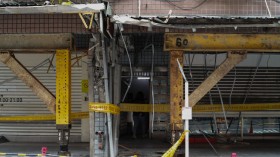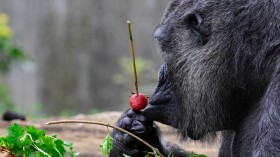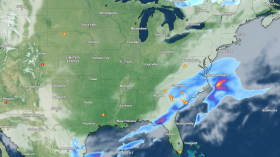Astronomers can add one more object to the map of the heavens, thanks to a team of astronomers who discovered a Saturn-like plant in another solar system 700 light-years away.
Called KELT-6b, lead scientist of the discovery and University of Louisville doctoral student Karen Collins explained her team caught sight of the planet when it passed in front of its host star. Since then, she said, their studies of the exoplanet have revealed a stark resemblance between it and HD 209458b, a gas giant located 153 light-years from Earth that weighs slightly less than Jupiter.
Roughly the same age as the Sun, KELT-6b is so metal-poor that Collins believes it should serve as a benchmark for comparative studies of how and under what conditions planets form.
From Earth, KELT-6b resides in the constellation Coma Berenices neighboring Leo and orbits its star every 7.8 days, with its trip across the face of the star lasting five hours for astronomers.
However, while five hours may seem like a short amount of time, most planets found by ground-based telescopes have even shorter orbits. For this reason, catching a complete observation of KELT-6b takes more time and more luck, including clear skies for the entire period of observation.
Collins and her team were fortunate, as it turned out, getting clear skies on both of their two opportunities to catch the planet earlier this year at the University of Louisville’s Moore Observatory, making KELT-6b the longest-duration full planetary transit continuously observed from the ground.
Moreover, in a time when “bigger is better” serves as the constant mantra coming from places like NASA and the European Science Agency, Collins pointed out that the discovery was initially made using a the Kilodegree Extremely Little Telescope (KELT) from which the planet derives its name. Located in Arizona, the telescope is about as powerful as a high-end digital camera.
For Collins who started as an electrical engineer before turning a longtime fascination with astronomy into a second career, the work is an adventure.
“To participate in planet discovery here in Kentucky, it’s just incredible to me to be able to do that,” she said in a press release.
© 2024 NatureWorldNews.com All rights reserved. Do not reproduce without permission.

![Great White Sharks Observed for the First Time Changing Their Behavior in Different Marine Environments [Study]](https://1471793142.rsc.cdn77.org/data/thumbs/full/70251/280/157/50/40/great-white-sharks-observed-for-the-first-time-changing-their-behavior-in-different-marine-environments-study.jpg)
![Origin of Life: Discovery of Lava Being a Building Block of Life Hints 'Humans Have Volcanic Origins' [Study]](https://1471793142.rsc.cdn77.org/data/thumbs/full/70262/280/157/50/40/origin-of-life-discovery-of-lava-being-a-building-block-of-life-hints-humans-have-volcanic-origins-study.jpg)


